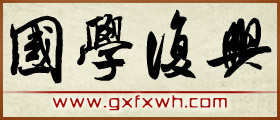|
|
Walter Heissig, A Lost Civilization
p.57-9
It was not until 1924, when Outer Mongolia with the help of Soviet troops became the Mongolian People's Respublic, that the term Outer Mongolia lost its meaning.
The Kuomingtang government retained the term until 1945, when a referendum was held in Northern Mongolia, at which the Chinese were represented and which left no doubt that the Kalka Mongols preferred indenpendence from China within the Mongolian People's Republic. But the Chinese continued to refer to Southern Mongolia as Inner Mongolia. Its Mongol tribes remained under Chinese sovereignty, although in 1922, with the sole exception of the Mongols in the Ordos region, they had openly supported the Kalkas' declaration of independence. At that time Chinese troops had intervened to prevent the fusion of Outer and Inner Mongolia into one nation-state, and this situation continued until fairly recently. In 1945, when the Red Army together with cavalry and tanks of the Mongolian People's Republic advanced against the Japanese in Inner Mongolia and the Mongol areas of Manchuria and drove them out, the Mongols thought the time had come to unite the various parts of Mongolia. The troops from the Mongolian People's Respublic took a number of leading figures from Inner Mongolia back to the People's Republic for indoctrination, and the formation of a United Mongolia seemed imminent. But at the Yalta Conference the Great Powers decided otherwise. Chiang Kai-shek's acceptance of the status quo in Outer Mongolia, in other words China's recognition of the independence of the Mongolian People's Republic after a delay of some twenty-two years, dealt the final blow to Inner Mongolian hopes of joining it. Recognition of the situation obtaining in Mongolia in 1945 meant that inner Mongolia and the Mongol areas of Western Machuria were part of China. The soldiers of the Mongolian People's Republic, who had been hailed as liberators in Inner Mongolia, obeyed the order to withdraw behind their own frontier with unconcealed reluctance. The Soviet Union took the precaution of leaving some of its motorized units, which had advanced into Inner Mongolia with the Mongol units and had now withdrawn to the Mongolian People's Republic, on the borders of the North Mongolian State, in order to check any popular feeling on reunification. Some years passed before these guarantors of 'friendship' with China were withdrawn from the Mongolian People's Republic to the Soviet Union. For in the meantime Chiang Kai-shek and the National Kuomingtang government of China had moved to Formosa and China had become a People's Republic. Peopls enjoying the same form of government should have no differences! The two neighbouring People's Democracies concluded pacts of friendship and solidarity. The Mongols of Inner Mongolia remained a part of Red China with administrative autonomy, while the Kalka Mongols had their own State between the two Communist giants, Russia and China, so that China's claim to Inner Mongolia remained precisely as it had been under the Manchu dynasty.
|
|
